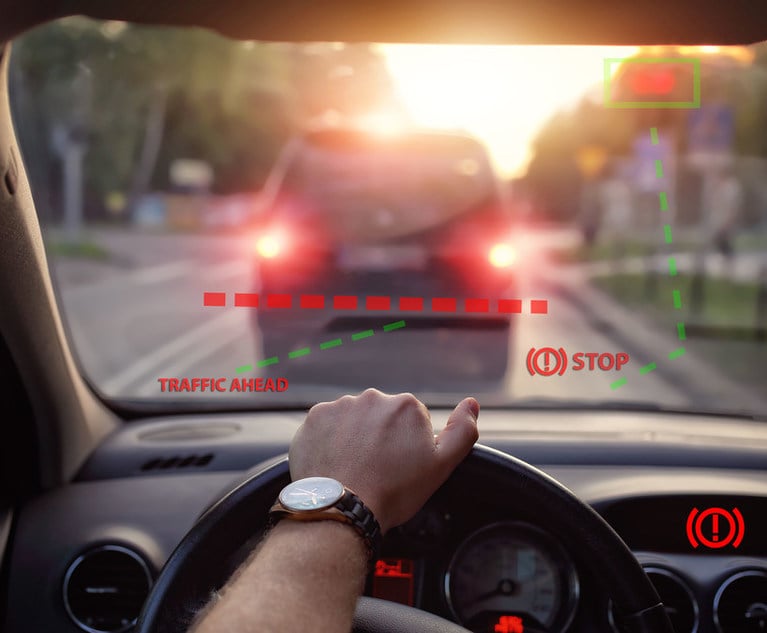(Bloomberg) – In the past several weeks alone, elderlyJapanese drivers have been wreaking havoc across the country:breaking through median barriers into oncoming traffic, plowingover pedestrians crossing the road, and smashing into othercars. In all these cases, somebody was killed.
|And as Japan's population continues to age — meaningmore and more older drivers are behind the wheel — the problemis only getting worse: Drivers aged 75 and over were connected to459 fatal accidents last year, 13% of Japan's total, up from 7.4% adecade earlier, National Policy Agency data show. Stopping thecarnage on the roads is an “urgent problem,” the agency said in astatement.
|Related: 10 most dangerous states for seniordrivers
|“Urgent issue'
“Preventing road accidents caused by changes in the physicalcondition of drivers is an urgent issue that needs to be dealtwith,” Mineko Baba, of Keio University's Center for IntegratedMedical Research, wrote in a research report last year. “Laws andsociety haven't caught up to the situation of the rapidlyincreasing number of dementia patients.”
|Currently, one-quarter of Japanese are 65 or older, and theproportion is forecast to reach 38% within five decades.
|In one of the worst recent incidents, last October an87-year-old man crashed his light truck into a group of childrenwalking to school in Yokohama, killing a 6-year-old boy andinjuring two others. This year in June, a 74-year-old woman killeda man driving the other way in Fukuoka after jumping themedian. Just this past weekend, two people in their 80s werekilled when their car collided head-on with a large truck inside atunnel in Gifu prefecture, according to local media reports. Thetruck driver was uninjured. The reports said one of the vehicleslikely crossed the center line.
|Just this past weekend, two people in their 80s were killed whentheir car collided head-on with a large truck inside a tunnel inGifu prefecture, according to local media reports. The truck driverwas uninjured. The reports said one of the vehicles likely crossedthe center line.
|The issue is a “major challenge” for authorities, said HirokiSasaki, an accident investigator and former policeman based in thenorthern city of Sendai.
|Efforts to get dangerous seniors off the road
The government is stepping up efforts to get the most dangerousseniors off the road. Changes to the law took effect in Marchrequiring drivers over 75 to take a cognitive test when renewingtheir licenses or if they commit offenses such as running a redlight or turning into the wrong lane. Those who fail are ordered toundergo a medical exam. If they flunk that, they're stripped oftheir licenses. As many as 15,000 licenses a year may be forciblyrevoked, the National Policy Agency projects.
|Despite the carnage wrought by Japan's seniors, Japan's overalldeath toll on the roads has been declining for years, reachinga 67-year low of 3,904 deaths in 2016, police figuresshow. As a result, the percentage involving elderly drivers hasnearly doubled.
|Related: Older drivers seek high-tech safety features ingreater numbers
|Older drivers are also increasingly volunteering to hand overtheir licenses. Under a program that's been in place for almost twodecades, 345,000 people relinquished their driving credentials in2016, up 21% from a year earlier. In the first three months afterthe new law took effect, 1,271 old people a day on average returnedtheir licenses, up from 946 a day in 2016, according to theNational Police Agency.
|One of them is Katsutoshi Kamei, a 79-year-old retiree fromTokorozawa, west of Tokyo, who gave up his license in Novemberafter hearing about the increase in accidents. He said he wanted tostop driving “before something like that happened.”
|Incentives to hand over driving papers
Some companies are offering incentives for senior citizens tohand over their driving papers. Elderly people who give up drivingin Tokorozawa are offered a year of free transportation on acommunity bus service that runs throughout the city, plus 20% offpurchases at Mister Donut, a unit of Duskin Co. Other perksinclude a 10% discount on a local home-help service, 10% off taxifares and even discounts on funeral services.
|Banks and insurance companies are also getting in on theact. Bank of Kyoto Ltd. gives a 1 percentage pointdiscount on car loans for anyone living with a senior citizen whohas given up the keys. Awa Bank Ltd., on the western island ofShikoku, offers an additional 0.3 percentage point on time depositsfor elderly folks who stop driving. MS&AD Insurance GroupHoldings Inc. said last month it's developing an in-car boxthat sounds a warning if the vehicle goes outside a predeterminedarea or drives the wrong way and alerts family members via asmartphone app.
|Giving up the car keys can be tough for people who live awayfrom public transport or are the only driver in the household.Older people sometimes overestimate their own cognitive abilities,according to researchers. It's also an issue of independence, ofgiving up personal freedom and reconciling with old age.
|Losing the right to drive and the independence that accompaniesit may also hasten physical decline and contribute to dementia,said Hiroshi Takahashi, a former professor of welfare policy at theInternational University of Health and Welfare Graduate School whoadvises governments on elderly care. Policies should encourageinnovation to give seniors more options for mobility, such asself-driving cars, he said.
|Related: Google sees stranded seniors as big market forself-driving cars
|“The government is restricting their movements without givingalternative mobility options, which makes it really difficult forthem to stop driving,'' he said.
|Takao Inui, an elderly resident of Tokyo's Shibuya district whodrives a Suzuki Cruze, said he uses his car about once a week forshopping or when his wife needs to go somewhere, and has no plan togive up for perhaps three years. While public transportation isreadily available, he prefers to drive.
|“I'm aware that at 77, things are starting to get dangerous, soI'm very careful when I drive,'' he said. “If I got sick orsomething scary happened, then I'd have to think about it —although I guess that might already be too late.''
|Kamei, the 79-year-old retiree from Tokorozawa, now relies onhis 69-year-old wife to drive him around.
|“The way she's going, I think she'll be okay for another 10years or so,” he said. “And I guess it'll be taxis after that.”
|Copyright 2018 Bloomberg. All rightsreserved. This material may not be published, broadcast, rewritten,or redistributed.
Want to continue reading?
Become a Free PropertyCasualty360 Digital Reader
Your access to unlimited PropertyCasualty360 content isn’t changing.
Once you are an ALM digital member, you’ll receive:
- All PropertyCasualty360.com news coverage, best practices, and in-depth analysis.
- Educational webcasts, resources from industry leaders, and informative newsletters.
- Other award-winning websites including BenefitsPRO.com and ThinkAdvisor.com.
Already have an account? Sign In
© 2024 ALM Global, LLC, All Rights Reserved. Request academic re-use from www.copyright.com. All other uses, submit a request to [email protected]. For more information visit Asset & Logo Licensing.








